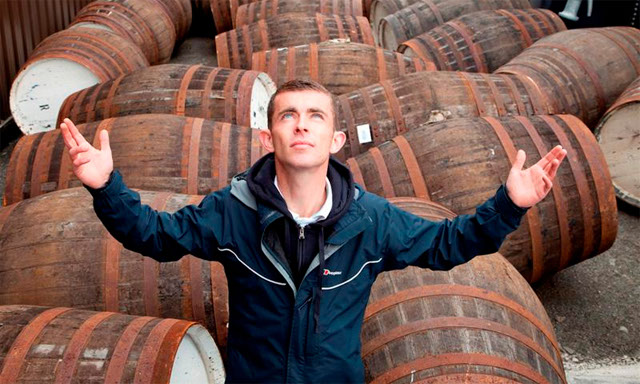
Film: Angel’s Share
Country: UK/France/Belgium/Italy
Year of Release: 2012
Director: Ken Loach
Screenwriter: Paul Laverty
Starring: Paul Brannigan, John Henshaw and Gary Maitland
♥♥♥½
Angel’s Share, the latest film from stridently independent British filmmaker Ken Loach is an unusually sprightly affair from one of the masters of social realism. Telling the story of a young Glaswegian thug named Robbie (Paul Brannigan) who attempts against all odds to rise above the shackles of his violent past and uncontrollable temper, the film takes a leaf out of Hollywood’s book, following a familiar arc of challenge and redemption, but without giving into the pressure towards blandness that usually follows such an approach.
It is this contrast between the engaging, easy watchability of the film and Loach’s insistence on the difficult truths of naturalist cinema that makes Angel’s Share such a delight. The film begins with an entertaining series of court cases involving a number of working class roughnecks, including Robbie – who narrowly escapes prison due to the fact that his son is about to be born. Sentenced to community service, along with the rest of the motley crew, Robbie strikes up a friendship with the kindly supervisor Harry (John Henshaw). Harry introduces him to the rarified world of whiskey appreciation and, oddly enough, Robbie has a remarkable nose for the spirit and its complex notes.
After taking a tour of a distillery along with the rest of the crew, Robbie’s enthusiasm intensifies, and when he joins Harry at a high-brow whiskey tasting, he impresses the local aficionados with his grasp of the finer details of the elevated spirit. But Robbie’s interest in the subject matter gets further aroused when he learns about a barrel of rare malt mill whiskey – the only such barrel left in the world – that could be worth as much as a million pounds. And so, in the company of his community service compadres, he dons a skilt and head off to the rural Scottish valley where the barrel will be auctioned.
While the narrative arc of Angel’s Share is sweetly satisfying, its the texture of reality that gives it substance. Loach never shies away from Robbie’s violent nature, nor from the fact that it doesn’t mean that Robbie is a bad person. While we see and hear in detail the violence that Robbie has committed, Loach doesn’t dwell on the visual shock of that violence but rather on the emotional effects on both Robbie and his victims. And when Robbie is given the genuine desire to start a new life by the birth of his son, it feels completely convincing, not simply a mechanism in a storyline. Similarly his intuitive grasp for whiskey and its complexities never feels false. Loach deals in unlikely events taking place in a real world filled with unlikeliness.
Located midway between a dramatic thriller and a naturalist comedy, Angel’s Share is both remarkably gentle and realistically brutal. The film won the Jury Prize at Cannes this year, and given the paucity of engaging human dramas on global screens it’s easy to see why. And, for those who might object to the tinge of Hollywood, I think that even the most serious director should be allowed to make a feel-good film every now and then. Angel’s Share might not be Loach’s best work but it’s certainly one of his most enjoyable outings.
The film will still be showing at Cinema Nouveau next week, but probably not the week after that. It’s a pity that it’s on a wider release. It’s hugely accessible yet filled with intelligence and a humanity. Sadly, there are not many films which grace our screens that I can say that about.
© PETER MACHEN 2017